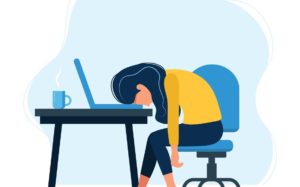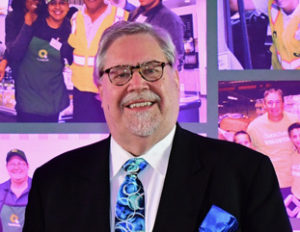In a recent PSA MN presentation, I discussed the Emotional and Psychological challenges that face salespeople, as well as how individuals can use Emotional PPE — Resiliency, Realistic Optimism and Positive Actions — to overcome those challenges.
 Workplace Culture also plays a role in decreasing — or increasing — these hazards. There can be cultural barriers to openly acknowledging Emotional and Psychological challenges, such as:
Workplace Culture also plays a role in decreasing — or increasing — these hazards. There can be cultural barriers to openly acknowledging Emotional and Psychological challenges, such as:
- Fear of looking weak, vulnerable, or incompetent
- A stigma and/or negative consequences (real or perceived)
For example, workers in construction and health care can often downplay the importance of physical and emotional challenges. As one doctor put it, “If you cough up a lung you shove it back in and get back to work.”
Another cultural issue is Emotional Contagion. You can “catch” emotions the same way you would an office cold. So, you can catch Stress, Anxiety, and Fear from the other people within the organizational culture. But you can also catch Resiliency, Realistic Optimism, and Courage.
Emotional PPE is a team sport; it requires support at all levels of the organization. It also requires what Amy Edmondson — in her book The Fearless Organization — describes as a “Psychologically Safe Environment”, one in which it is okay for everyone to speak up, ask questions, be vulnerable, and express emotions.
In a culture that supports Emotional PPE, Leaders Go First. If you’re a leader within an organization, its vital that you lead by example and be a role model:
- Help people feel safe, empowered, and understood
- Ask and listen
- Be willing to have difficult conversations about Emotional hazards and PPE
- Monitor warning signs
- Encourage people to use EAP and Health Care resources
- Make sure that people feel connected to the organization, its purpose, and their team.
 We’re all in this together. As the old saying goes, “I have to do it myself, and I can’t do it alone.” By being open and vulnerable to discussing Emotional and Psychological challenges, and willing to use Emotional PPE and supporting others to do the same, we can create a culture in which everyone stays emotionally healthy.
We’re all in this together. As the old saying goes, “I have to do it myself, and I can’t do it alone.” By being open and vulnerable to discussing Emotional and Psychological challenges, and willing to use Emotional PPE and supporting others to do the same, we can create a culture in which everyone stays emotionally healthy.
Contact Ronn Lehmann : ronn@ronnlehmann.com
